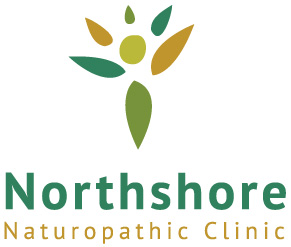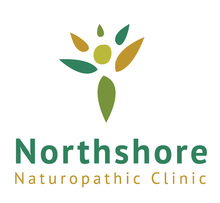Contrary to popular belief, your body needs fat to function properly. The trick is to choose the right types of fat to achieve optimal health.
Essential Fats
Certain fats are vital to a well-balanced diet because they provide “essential” fatty acids (EFAs)—omega-3 and omega-6 fatty acids—those that your body cannot synthesize itself. Your body needs EFAs to maintain and regulate normal cell growth and repair. EFAs are found in the membranes of every cell of your body and they’re important components of your nervous, immune, and hormonal systems, among others. EFAs aid in transporting and storing the fat-soluble vitamins (A, D, E, and K) and in energy production. In addition, fats are responsible for satiation (a feeling of fullness) which helps to prevent overeating.
Eating the right types of fat does not make you fat; in fact, they can help with fat loss, particularly omega-3 fatty acids. As Udo Erasmus states in his book, Choosing the Right Fats, “Essential fats can help you normalize your weight and reduce body fat. They will increase your metabolic rate, heat production, and energy levels, which means that you burn more calories, even at rest. They also make you feel more like being physically active, which results in additional calorie burning.” Udo also states that EFAs: “help your kidneys dump excess water held in your tissues—water that constitutes extra weight;” suppress appetite; help decrease cravings for sweets, junk foods, and starches; elevate mood and lift depression; and “increase the activity of several genes that make enzymes for fat burning and thermogenesis, and decrease the activity of several other genes that make enzymes for fat production.
On the Eating Alive Program, we highly recommend Udo’s Oil—either Udo’s 3.6.9 Oil Blend (available in retail stores) or EFA-PLEX TR (available in medical clinics)—because it contains a balanced blend of EFAs. Fatty, cold-water fish, such as salmon, mackerel, sardines, and tuna, are good sources of EPA (eicosapentaenoic acid) and DHA (docosahexaenoic acid), two omega-3 derivatives. DHA is used in the nervous system as a building block—for brain cells, for example. EPA has broad-acting anti-inflammatory properties.
Other recommended EFA-containing fats on the Eating Alive Program include:
- flax seed oil and flax seeds—these should be ground to release the oil and then eaten immediately after doing so
- hemp seeds and hemp seed oil
- almonds and smooth almond butter
- sesame oil and sesame seed paste (tahini)
- pumpkin seeds and pumpkin seed butter
- sunflower and safflower oils.
These healthy fats are easily destroyed by heat, light, and air, so special care needs to be taken during their processing and storage. Most oils sold in the supermarket are highly processed; this can result in the formation of trans fatty acids and the depletion of nutrients such as vitamins, minerals, EFAs, and antioxidants.
Choose oils that are unrefined, minimally processed, and expeller or cold pressed. These healthy oils are sold in dark or amber-colored bottles that won’t allow light in and should have an expiry date on the bottle. In order to preserve their EFAs, they should be kept in the fridge and should not be used for cooking. They can be found in health food stores and are more expensive but are worth the extra cost from a health point-of-view.
Avoid Trans Fats
Hydrogenation is the process that turns unsaturated fats into saturated fats; it makes liquid vegetable oils solid (for example, shortening and margarine) and prevents the oil from becoming rancid so as to increase its shelf life. However, during the process of hydrogenation, trans fatty acids (or trans fats) are formed. Trans fats are formed whenever unsaturated oils are heated to high temperatures. They are unnatural fats that your body cannot use properly. They impair the cell membranes which are important for keeping cells alive and healthy. Consumption of trans fats has been linked to heart disease, diabetes, obesity, and cancer and they also adversely affect reproduction, lactation, and immune function. Hydrogenated oils are found in commercial margarines, shortenings, salad and cooking oils, and in many processed foods and they should be avoided.
Olive Oil
Olive oil is another acceptable oil to use on the Eating Alive Program. It contains only very small amounts of EFAs but this monounsaturated fat has been shown to lower “bad” cholesterol and increase “good” cholesterol. Choose extra-virgin olive oil which is obtained from the first pressing of the olives, therefore it is less processed and healthier than light or regular olive oil.
Coconut Oil
Coconut oil is also a healthy fat. One of the reasons why it has gotten such a bad rap is because it contains saturated fat. However, this naturally saturated oil does not contain trans fats like many of the oil products on the market today.
Coconut oil contains medium chain fatty acids (MCFAs) which are easily digested and metabolized by the liver. They are used as fuel to generate energy in the liver and are therefore not stored as fat, nor do they collect on the walls of the arteries like some other fats. MCFAs also lower cholesterol and protect against bacterial, viral, and fungal infections.
Coconut oil can be used for baking and sautéing because it is more heat stable than other oils—when it’s cooked at higher temperatures, it doesn’t create toxic trans-fatty acids. Like any other high-quality oils, coconut oil should be unrefined and packaged in opaque (light-protected) containers. You can find organically grown, pure coconut oil in health food stores and some grocery stores.
Butter vs. Margarine
When it comes to choosing between butter and margarine, butter is definitely the better choice. Most margarines are hydrogenated and therefore contain unhealthy trans fats. Butter has many health benefits—it contains: antioxidants in the form of selenium and vitamins A and E; lecithin, which helps the body break down cholesterol; CLA (conjugated linoleic acid), an EFA that aids in fat loss and may help reduce the risk of cancer; and two fatty acids—butyric acid and lauric acid—that have antibacterial, antifungal, and anticancer properties. Because it is a saturated fat, butter should be used in moderation. Like coconut oil, it is more heat stable than other oils and can be used for cooking and baking. Better yet, use ghee. Ghee is clarified butter—the water and milk solids have been removed which prevents rancidity and bacteria formation. This clear oil can be used for cooking and baking as well.
Canola Oil
Canola oil is not a recommended fat on the Eating Alive Program because most canola seeds are genetically modified organisms (GMO). GMO foods are those that have been genetically altered in order to resist pests and disease thereby increasing the crop yield. The effects of GMO foods on humans have not been extensively studied so they are very controversial. Because of this, it is best to avoid GMO foods as much as possible. If you want to use canola oil, make sure that it is certified organic and GMO-free.
See this month’s recipe for a Basmati Rice and Quinoa Salad that includes good fats in the form of healthy oils and seeds.



